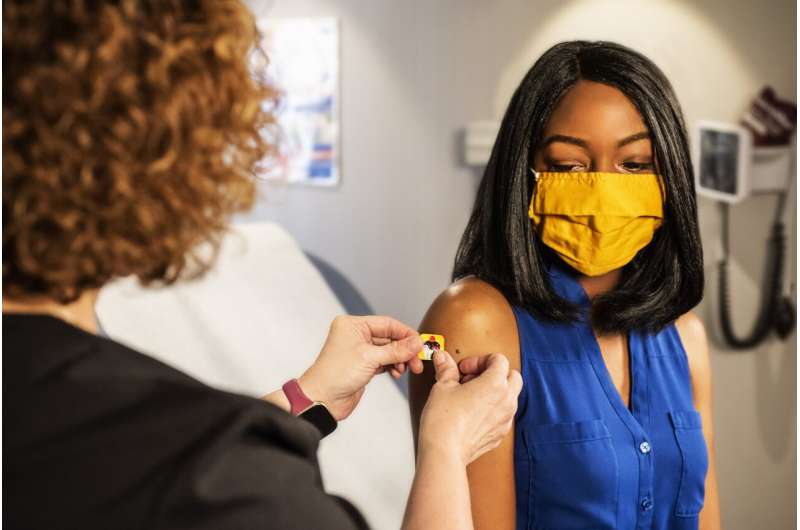
A new international study finds some people may experience a slight, temporary change in the length of their monthly menstrual cycle following COVID-19 vaccination.
The study, led by Oregon Health & Science University clinician-scientist Alison Edelman, M.D., M.P.H., and published today in the journal BMJ Medicine, builds on prior work from the same research team that first identified an association between COVID-19 vaccines and menstrual cycle changes.
Their initial research included data from individuals within the United States; this recent study expanded to analyze data from an international cohort representing a larger, more geographically diverse population receiving a broader range of vaccine types. Additionally, researchers were able to look at study participants’ menstrual cycles after they received the vaccine to see how long it might take to resolve any changes.
“Menstruation is woefully understudied, which is troubling considering it is a key indicator of fertility and overall health,” said Edelman, the study’s lead investigator and professor of obstetrics and gynecology and division director of Complex Family Planning in the OHSU School of Medicine. “Our findings with this larger dataset are very consistent with our previous research. Some individuals experience a slightly longer cycle length with the COVID-19 vaccine, and for most, it goes back to normal quickly.”
“But more importantly,” she added, “we hope our findings further validate what so many individuals reported experiencing, and allow health care professionals to provide patients with better care and clinical recommendations.”
A range of menstrual cycle changes after COVID-19 vaccination have been reported, including longer and shorter cycles, missed cycles, heavier and lighter menstrual flow, and intermenstrual spotting. However, clinical trials of vaccines do not collect outcomes related to menstrual cycles, leaving a significant gap in knowledge around these issues, prompting Edelman and team to look more closely at what was being reported by the public.
The study’s data include more than a quarter of a million menstrual cycles recorded by almost 20,000 individuals using the menstrual cycle tracking application Natural Cycles; participants granted researchers permission to use their de-identified data.
The findings were consistent with results found in the U.S. cohort: Individuals who received two doses of a COVID-19 vaccine in a single menstrual cycle saw an average increase in cycle length of 3.7 days compared with the unvaccinated group. On average, vaccinated people experienced an increase of less than one day in each cycle in which they were vaccinated: a 0.71 day increase after the first dose and a 0.56 day increase after the second dose.
Vaccinated or not, individuals experienced changes in their cycle length, but a larger proportion of vaccinated individuals had an increase in cycle length of more than eight days (13.5%), compared with those who were unvaccinated (5%). Additionally, changes in cycle length appeared to be similar across the different vaccine types, offering reassurance to those with concerns about newer vaccine technology, Edelman said.
“Changes to routine bodily functions can be alarming, and cause fear and anxiety,” Edelman said. “We want to emphasize that the menstrual cycle changes at a population level are small and typically resolve in the cycle after vaccination. Hopefully this knowledge provides clarity about what people can expect after getting vaccinated.”
Individuals who notice prolonged changes in menstruation are encouraged to seek guidance from their clinician.
Source: Read Full Article
